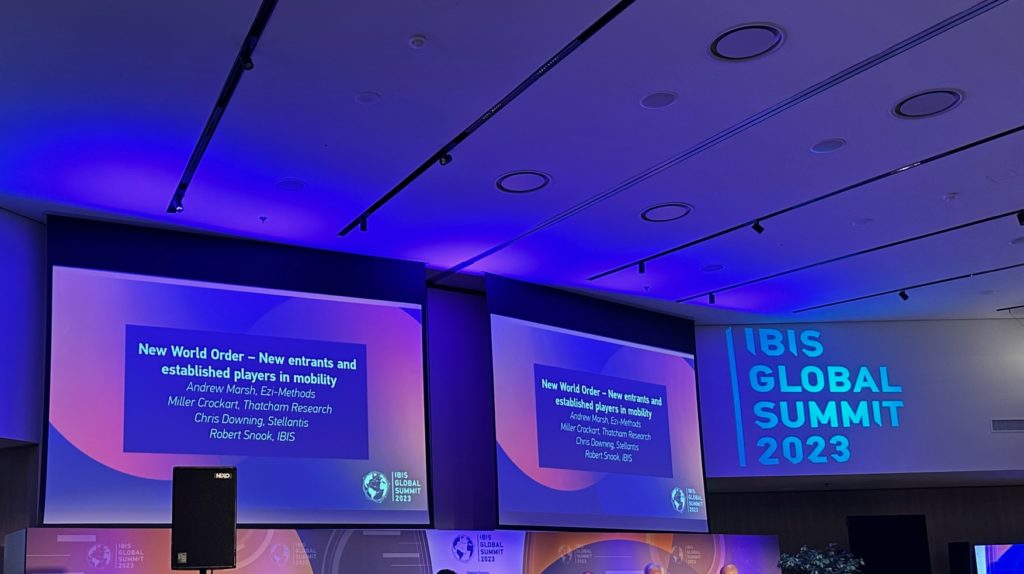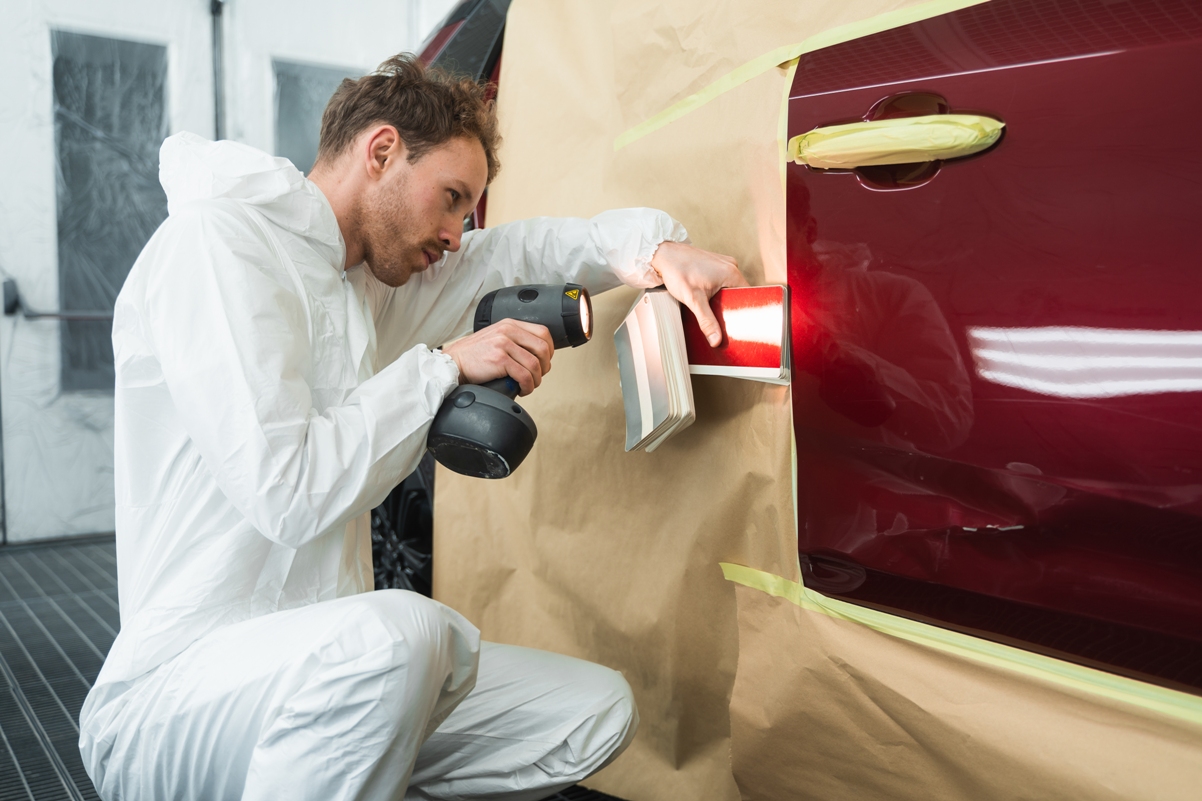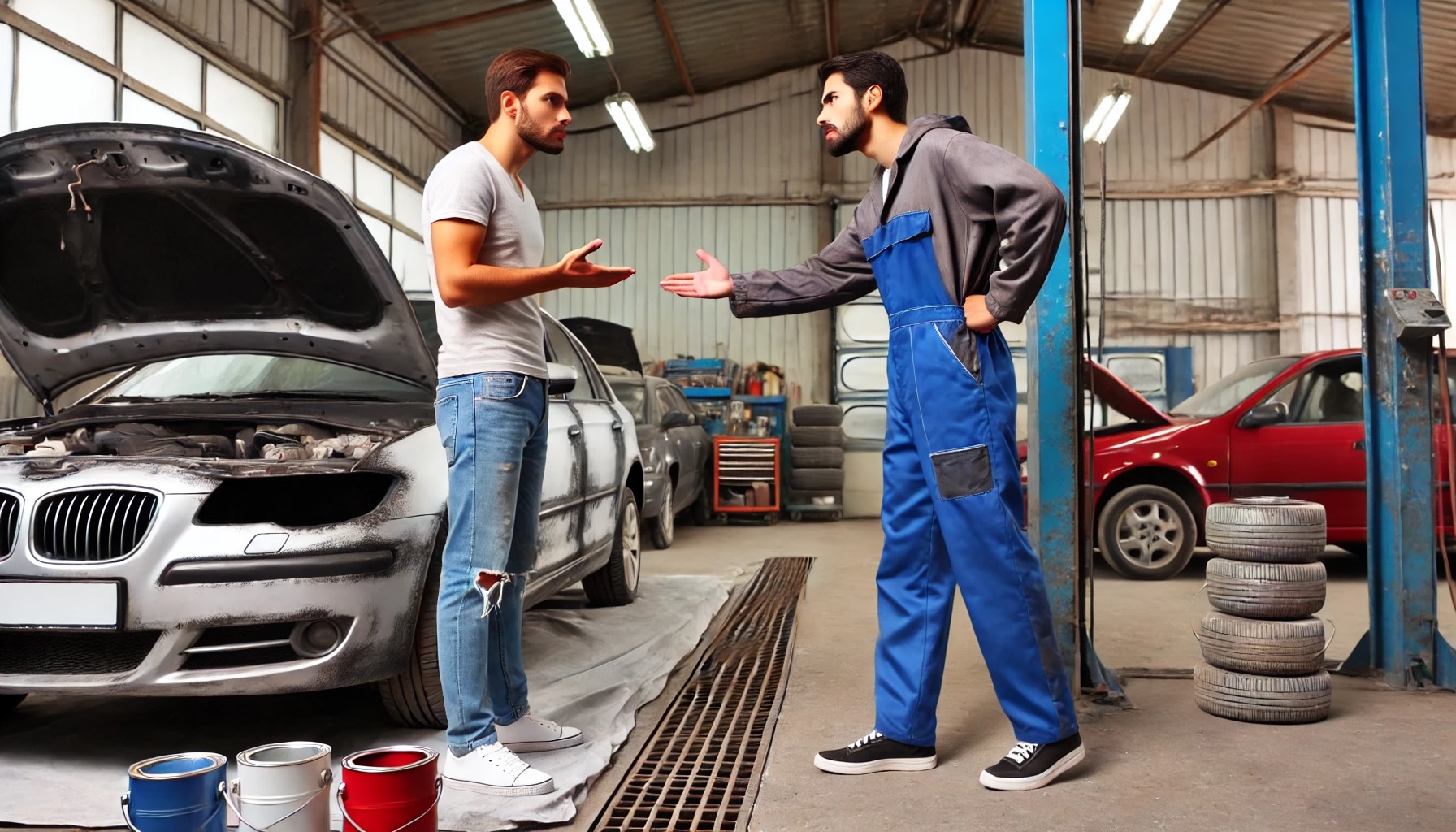Do you know what IBIS is? No, I am not talking about the well-known hotels chain. IBIS stands for International Bodyshop Industry Symposium, which is the world’s leading collision repair market conference provider. It has been successfully organized since 2001 by the UK’s leading industry magazine – Bodyshop Magazine. It has been held in various locations around the globe. Besides the regional events, once per year a global event takes place in different locations. This year it took place in Milan from 28 to 30th of June. For me it was the first event I attended, and I didn’t regret at all. What distinguishes IBIS from the other industry events is the diversity of the participants. Amongst the attendees and speakers are CEOs and top management from the largest insurance companies, paint manufacturers, tools and equipment producers, software providers, distributors and representatives of the repair shops. Basically, all the players of the collision repair industry are represented and have a voice. For a few days, competitors, customers and suppliers stay in one place and share their thoughts, data and opinions on the industry.
All of the participants have the possibility to ask questions to the speakers and the atmosphere is great and friendly. It is always great to hear different opinions from different sides of the industry.
While the topics during the summit were different, I would distinguish three of them: problems in attracting and keeping employees in the industry, insurer insights and AI technology and increasing complexity of the repairs due to the electromobility.

Inability of the collision repair industry to attract young employees
For those of you who have read my blog posts in the past, probably know my view that if nothing changes, we will very soon have no skilled workers in our industry. All the technological advancement will have little impact when there will be nobody to work in the bodyshops. We fail miserably to attract young people. IBIS summit proved me right. The problem is global and very serious. Each of the business must develop a clear employer brand to market itself as an attractive working space. We must showcase the need of skill in our sector, the immense career potential therein, the opportunities to use latest technology and the plenty of the valuable transferable skills that our workforce can gain through a job in the collision repair industry. Additionally, I believe it’s important to engage parents and relatives in order to demonstrate what a good career move this can be in terms of salary, job satisfaction, personal growth and the great feeling of making a difference to people lives in the repair of their damaged vehicles.
While it may be more difficult to attract people to our industry compared to more technology-driven ones such as IT, software engineering, etc. it’s not impossible. There is still so much potential to attract talented and enthusiastic people in the sector. All we need to do is properly market our industry and convince the younger generations that collision repair offers an excellent career opportunity for them.

Artificial Intelligence (AI) as a tool for the Insurance companies
AI can be used to speed up and improve the accuracy of collision repair assessments. AI-enabled software can supplement or replace manual inspections by offering a more consistent and efficient analysis, helping to quickly identify any damage, the exact repair needed, and the parts and materials to do the job. AI can generate detailed reports of damage within moments rather than taking days, eliminating the need for a costly and time-consuming physical inspection. AI-powered platforms can also automate paperwork associated with repair estimates and invoices, streamlining the repair process and enhancing the customer experience. Additionally, AI can be used to compare repair costs with industry averages, providing repair shops with valuable, real-time market data to better manage costs and resources. Furthermore, AI will help to fight fraud in the industry, which is unfortunately still a big problem. (By the way, this paragraph was written with the help of ChatGPT)

Increasing complexity of the repairs due to the electromobility.
The worldwide automotive industry is going through a rapid transformation, with the development of electromobility at the core of this metamorphosis. Automakers are beginning to transition away from combustion engine vehicles and embracing clean and electric alternatives. This rampant shift to electric vehicles has presented challenges for manufacturers, with maintenance and repair of these cars requiring the adaptation of new strategies and technologies.
One of the main areas that has been negatively impacted by the shift to electric vehicles is collision repair. Repairs for collision damage on electric vehicles are much more complex compared to combustion engine cars, due to the need to reset and balance the electrical systems in the car. In many newer electric models, in particular, the complex combination of electric propulsion systems, vehicle control systems, communication systems, and safety systems makes the process of repairing electric vehicles very complex.
Furthermore, to complicate matters further, the sheer number of components in an electric vehicle is much larger than that of a combustion engine car. While a combustion engine requires only about a quarter of the number of parts compared to an electric vehicle, the more intricate setup of an electric car requires more complex parts with greater detail involved in their installation. As a result, collision repair technicians must undergo more extensive training in order to learn all the complexities of electric vehicle repair, and even then, they face taxingly detailed instructions provided by automakers.
Collision repair shops will need to make major investments in updating their facilities and acquiring the necessary tools and equipment to repair and maintain electric cars. They also must invest in training their employees in order to keep up with the relevant technical updates related to electric vehicles, which often require continual recertification. While the investments made by these shops may be substantial, the longer-term income from electric car repairs is expected to alleviate a significant portion of the costs.
Ultimately, the transition to electric vehicles will have far-reaching implications for the automotive industry, with the repair requirements of electric cars presenting an array of technical and operational complications to collision repair professionals. Increasingly complex repair processes and the need to upgrade tools and update qualifications will challenge collision repair technicians, while providing opportunities for them to make long-term investments in the latest technologies necessary to work on electric vehicles.
By the way, the next IBIS global will take place in Greece, Rhodos Island in May 2024. I am looking forward already!




